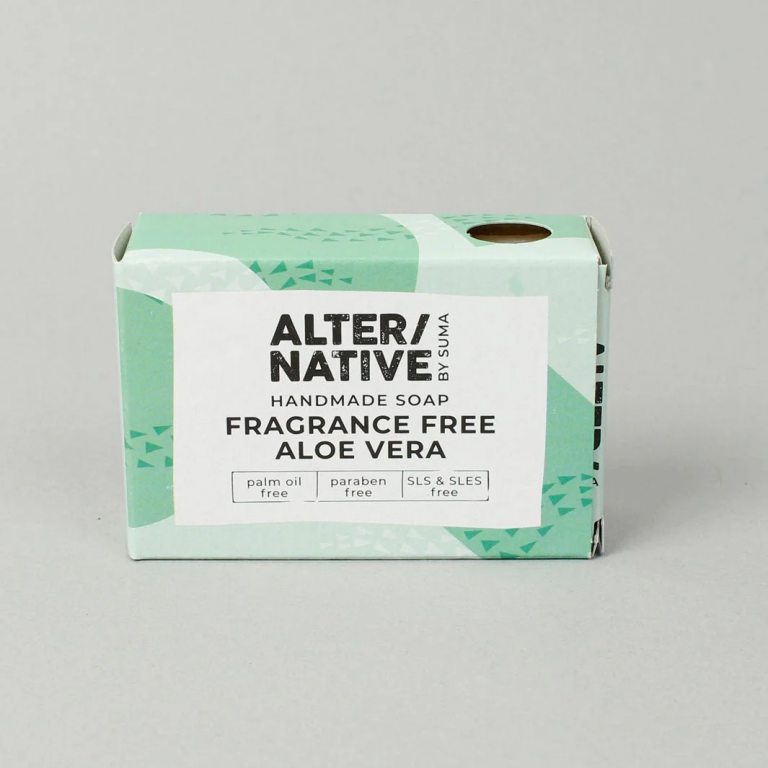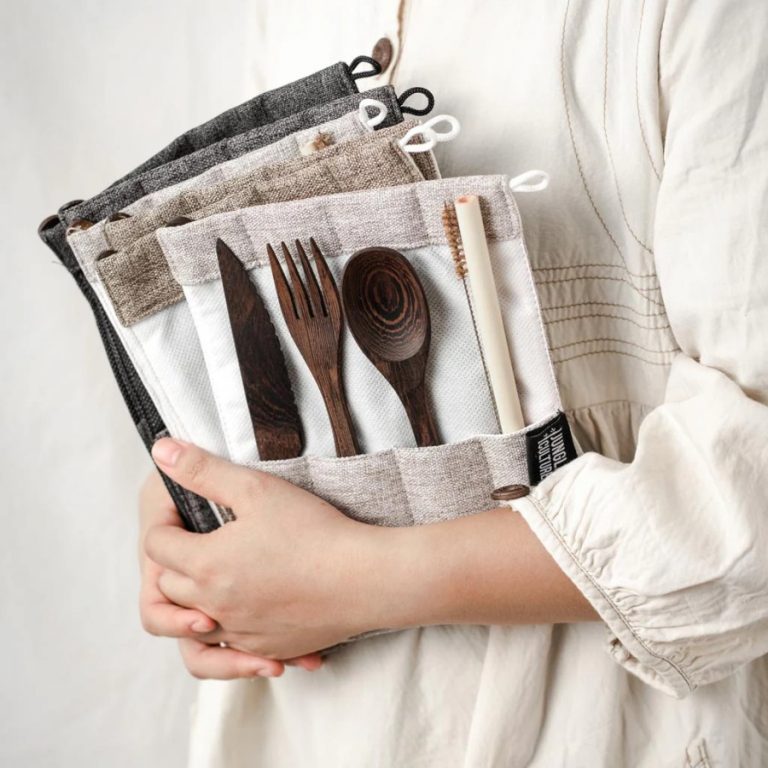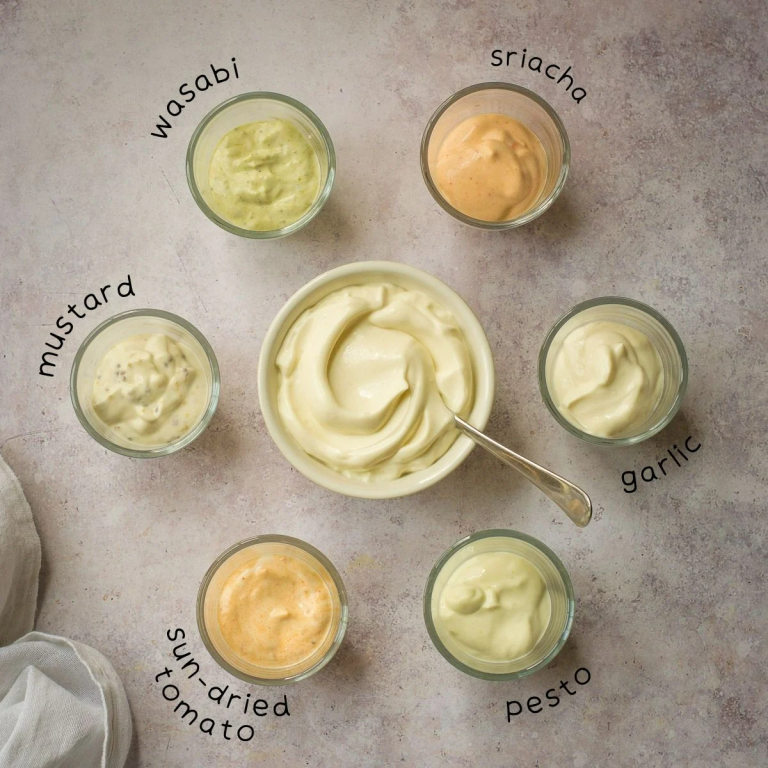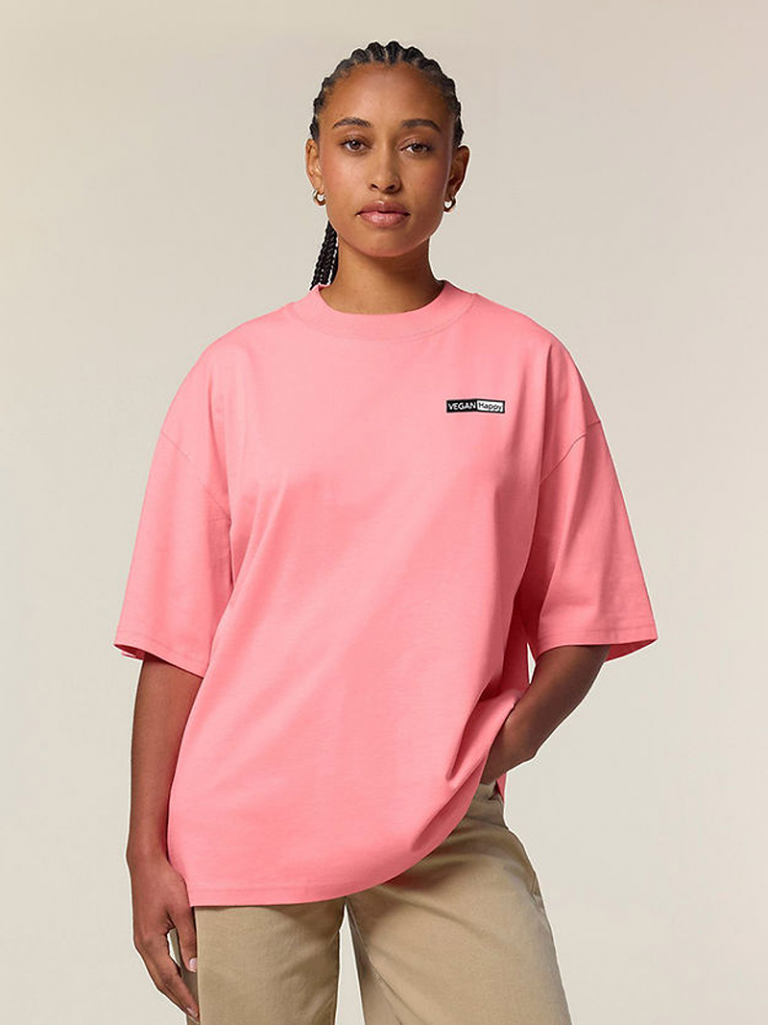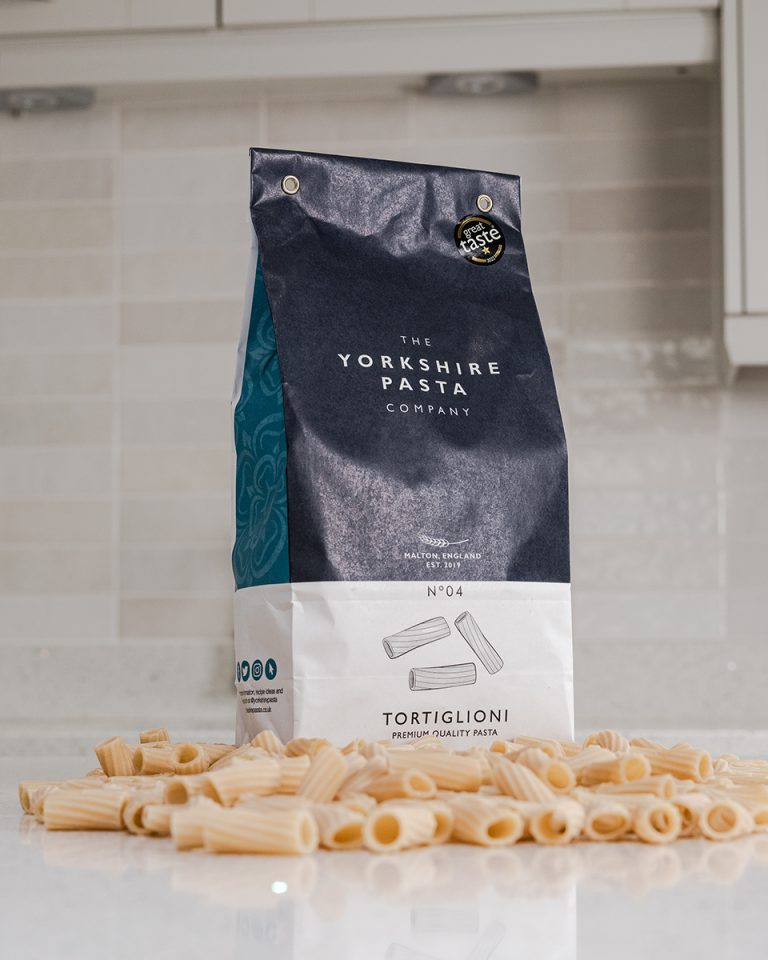
If you’ve shopped for new stationery lately, you may have noticed more eco-friendly options on the shelves. One standout choice is the notebook made from 100% post-consumer recycled paper. Sustainability isn’t a fad -it’s becoming a standard, especially for students, professionals and conscious consumers who want their daily essentials to match their green values.
Eco-friendly stationery is no longer a niche product. People want real ways to reduce waste and support ethical products without giving up style or function. Choosing a recycled notebook is one small but real step you can take.
Environmental Impact: The Green Choice
The environmental benefits of 100% post-consumer recycled paper notebooks go far beyond the recycled label. Every cover, page and binding is a reminder that your choices matter for the planet.
Saving Trees and Conserving Resources
Most paper comes from cutting down trees and processing them into fresh pulp. Post-consumer recycled paper dodges this path entirely. When you pick a notebook made from discarded paper, you’re lowering the demand for virgin wood pulp.
This helps protect forests, which act as our lungs by absorbing carbon dioxide and producing oxygen.
Recycling also uses less water and less energy. Creating paper from old paper rather than raw wood uses around 60% less energy and up to 50% less water. That’s not just good for the environment—it’s a real saving every time you jot down a thought.
Key Benefits:
- Fewer trees cut down
- Less energy used in production
- Lower water consumption
- Healthy forests and cleaner air
Reducing Landfill and Pollution
Notebooks are a small product, but paper waste adds up fast. In the UK alone, millions of tonnes of paper end up in landfill each year. Choosing 100% post-consumer recycled notebooks helps close the loop: old paper is given a second life rather than becoming trash.
Recycling also cuts down on pollution. Paper decomposing in landfill releases methane, a powerful greenhouse gas. Using recycled paper reduces both landfill volume and pollution from production, since manufacturing recycled paper generates fewer emissions and less toxic waste.
Here’s a quick look at the impact:
- Recycling 1 tonne of paper (saves 17 trees and 26,000 litres of water)
- Using recycled vs. virgin paper (cuts up to 74% air pollution)
- Diverting waste from landfill (reduces methane emissions)
Supporting Local Artisans
Going green isn’t just about saving resources. Many recycled paper notebook brands work closely with local makers and small businesses. When you buy from these companies, you’re doing more than choosing a better notebook—you’re uplifting the people behind the product.
Boosting Community Economies
Independent crafters and small manufacturers often operate out of local studios or co-ops. By sourcing recycled materials and producing goods locally, these makers keep money in the community and create jobs. In many cases, every sale helps keep traditional bookbinding and artisan skills alive.
Look for brands that tell you their story—chances are, you’ll be able to support artists, printers and craftspeople who care about both quality and ethics.
Why it matters:
- Jobs created locally
- Community investment
- Support for traditional skills
Promoting Fair Labour and Ethical Sourcing
Some well-known notebook producers stick to high standards for how their products are made. That includes fair wages, safe working conditions and sourcing materials responsibly. Many small recycled notebook companies offer full transparency about their supply chains so you know your money isn’t supporting unfair practices.
When you care about sustainability, ethics matter as much as materials. Some brands even support charities or environmental initiatives through each sale, building their business model around real positive change.
Look for:
- Certified fair labour practices
- Transparent supply chains
- Commitment to social and environmental causes
A Few Good Recycled Notebook Choices

Good Tuesday makes beautiful organised notebooks, made with post-consumer recycled paper, and sent in plastic-free packaging. The books are also designed to open, and lay flat.
There are even theme-related notebooks like this one for ‘notes from the garden’.
Read our posts on pet-friendly gardens and wildlife-friendly gardens. Also how to stop birds flying into windows.
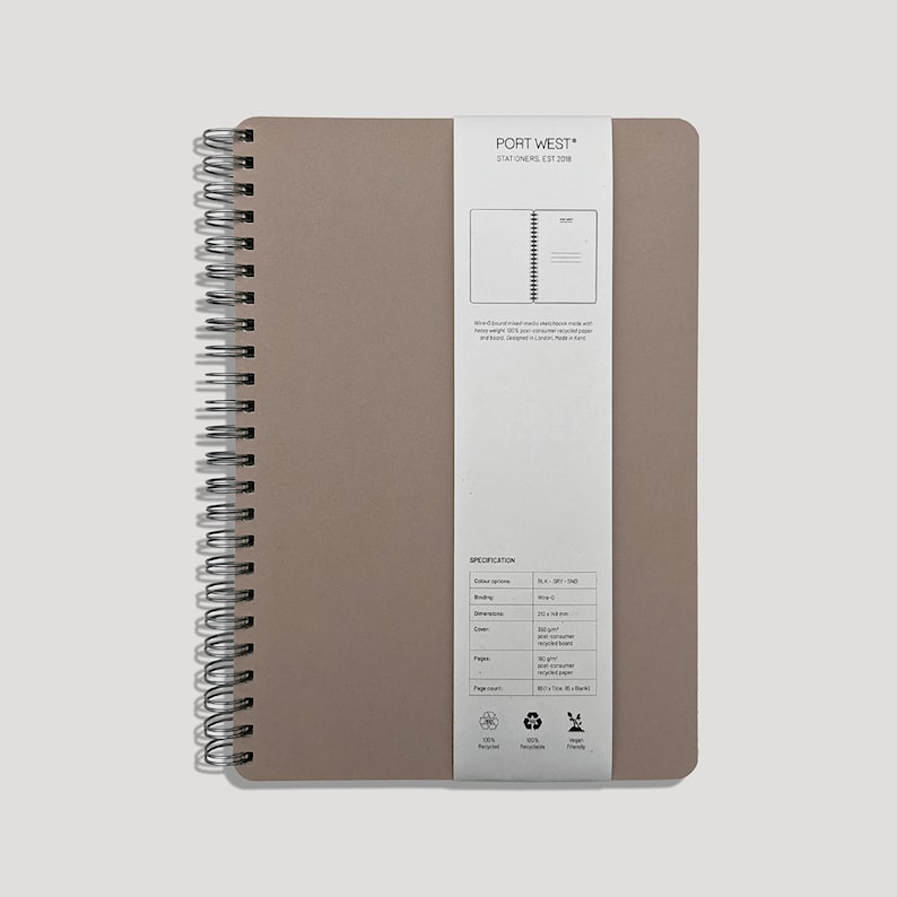
PortWestLDN are A5 journals, made in Kent from a blend of post-consumer recycled paper and upcycled coffee cups, with a handy page marker. Choose from 192 lined or dotted pages. Made using green energy.
The company also offers ‘second’ notebooks for a little discount, due to minor blemishes due to transport or storage (usually little things like faint cover scratches, unevenly rounded corners or the odd print misalignment).
The recycled sketch pads are wire-bound and feature heavy recycled card and inside recycled paper, with non-plastic coated recycled metal wire (85 blank pages).

CoffeeNotes is a unique company in Dorset, which makes beautiful notebooks. The difference is that they are made from recycled coffee cups. Most disposable coffee cups can’t be recycled, as they contain 5% plastic.
So this company melts down the cups to use the paper for the books, and then uses the plastic as ‘energy’ to make the cups!
All are vegan (bar one pad, made with recycled wool cover).
The to-do list pads are ideal as reminders or for shopping lists. Sold in a pack of three tall pads, each one has 60 tear-off pages with lined tick box sections and dotted sections, and dotted reverse sides.

The wire-bound pads contain dotted pages, and a folded cover so no glue is needed, the spiral spine is easily recycled. Also in plain and lined versions.
The stitched pads have recycled softback covers and the set includes plain, lined and dotted pages.
The planner features a cover made from real coffee waste, and a seven-day layout to plan your week. With blank columns for weekdays, and spaces for tasks and reminders.
Also as an organiser pad with tear-away pages and three flexible spaces for lists, notes and doodles.

About Blanks is a unique company. These notebooks are made by repurposing old books from libraries, that would otherwise have gone to landfill. And the company does all it can to use up recycled materials, rather than use new.

The company also unique employs people with disabilities and those with poor job prospects, to make the books.
This company is based over the sea with our Dutch friends in Rotterdam. Home to one of the world’s biggest ports, you can sail here from Hull (though it will take you 11 hours and cost several hundred pounds).

Vent 4 Change is a company that takes waste materials, and uses them to produce beautiful notebooks. Profits also help to fund children’s education.
Some items are made from recycled leather (we don’t list these, in case it creates a market).
This ocean waste notebook is sustainably made in Europe, with green energy. It has a textured fabric cover and 200 inner pages, with the cover being made from recycled ocean plastic waste (blended with post-consumer waste).

Sucseed A5 notebooks (also in A6 size) are different colours, depending on the kind of waste each notebook is recycled with:
- Coffee Beans
- Cherry Fruits
- Lavender
- Kiwi Fruits

The books contain plain, lined and to-do list pages.
Unique Paper Gifts from Yorkshire

Studio Wald is a unique company, run by a couple who print unique paper goods in Yorkshire, to save trees and give you something interesting to write on!
This pretty A5 notebook contains 48 recycled paper pages, ideal for notes, sketches, lists and doodles. It also has a clever folder to keep the book in, and provide somewhere for extra paperwork.
Designed, printed and finished in Yorkshire, the cover contains a little cotton, and it’s secured with a thick black rubber band closure, packed in a biodegradable corn/potato starch bag.

The gardener’s diary is open-dated, and shows a month to view, with enough pages to last a year. Ideal to make a note of planting dates and garden reminders, and to refer back, when complete.
Before planting, learn about pet-friendly gardens. Avoid facing indoor foliage to gardens, to help stop birds flying into windows.

Recipe Notecards are sold as a set of four blank cards, with vegan vegetable soups on the reverse side of each illustration. Once the card has been used, the recipient can tear the perforated edge, to keep the recipe.
Before cooking, read up on kitchen safety for people and pets.
Another Loop Stationery (miniature artworks!)

Another Loop is a wonderfully original company, founded by two art students. They create unique stationery gifts that are like miniature works of art, far more interesting than the boring fodder you find on the high street.

Everything is designed from scratch in a small studio using hot foil press. For occasions big or small, you are sure to find something to suit. All paper used is FSC-certified and where possible, uses recycled fibres and renewable energy.

As items are printed in small batches, there is no waste. Any offcuts are turned into other products like gift tags. All foil is easy to recycle, and waste foil is sent off, to make into clean energy. Their packaging is not always the prettiest, but that’s because it’s usually recycled too!
The Benefits of Handwritten Notes
Sitting down with a recycled notebook does more than help the planet. It’s a ritual that supports your mind, focus and even your happiness. In a world full of screens, writing by hand stands out as an act of intention.
Enhancing Creativity and Retention
Research shows that writing things by hand taps into parts of your brain you just don’t use with a keyboard. Handwriting boosts memory, sparks creative ideas and can even help you process your thoughts better. It’s like giving your brain a workout every time you write.
Recycled paper notebooks don’t just offer a blank space for ideas—they offer a sense of purpose. Many people say they work harder to fill a notebook when it’s eco-friendly, adding weight to every note or doodle.
Cognitive perks:
- Better memory retention
- Deeper creative thinking
- Less distraction from tech
An Eco-Conscious Statement
Carrying and using a recycled notebook says something about you – without you ever saying a word. It’s a small but clear way to signal your values. It often inspires others nearby to ask or think about making greener choices themselves.
In study groups, meetings or the café, your green notebook starts conversations and plants seeds for future change. Every time you pull out a sustainable notebook, you’re voting for a cleaner, fairer world with your actions.
Conclusion
Small choices can lead to big change. Choosing a 100% post-consumer recycled paper notebook is a perfect example. When you make the switch, you’re saving resources, cutting pollution, supporting local artisans and boosting your own personal focus.
Sustainable stationery is about more than good intentions. It’s about making an impact in your daily life. If you’re ready to leave a lighter footprint and support ethical producers, reach for a recycled paper notebook next time you shop. Each page is a fresh start for your ideas—and for the planet.

